Travelling with blood cancer? What you need to know
Blood Cancer UK Ambassadors share their tips for choosing a holiday that won’t provoke your symptoms, packing medication, and avoiding infection while you’re away.
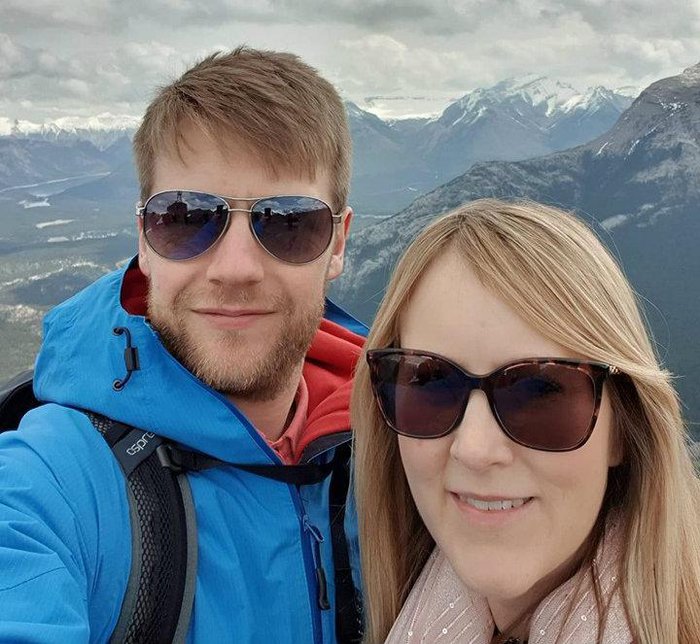
Emma on holiday
How to choose the right time
Emma (pictured above), is in remission from acute lymphoblastic leukaemia (ALL). She recommends being realistic with timing:
“When you’ve finished treatment, I would suggest waiting 4-6 months to regain some energy before going away. Travelling can be heavy going, and it can take time to build up some strength.”
George, who’s also in remission from ALL, finds that a holiday is an important way for him and his wife to enjoy life after their experience with blood cancer:
“Since my stem cell transplant, we've tried to do a 'big' holiday every year – it helps us feel like we’re making the most of life! When we’re booking or checking in, we always play the cancer card. When we got the Eurostar to Brussels on the 100-day anniversary of my transplant, we had a first-class carriage to ourselves!”
If you’re not sure whether you’re ready for a holiday, Emma recommends:
"Have a chat with your clinical nurse specialist or consultant before you go. If you have worries, no matter how trivial, they’ll be best placed to put your mind at rest.”
How to choose your destination
Emma's technique during treatment was to make sure there was always a hospital within reach:
“When I was on treatment, I didn’t travel outside of a one-hour radius of a hospital.”
Sylvia, whose husband has acute lymphoblastic leukaemia (ALL), says:
“We plan trips around open spaces in the outdoors, where there’s less chance of picking up an infection. We travel in short bursts to avoid travel sickness. We have a static caravan about an hour from home so we can get a change of scenery without it being a major event.”
Helen Tait, who's in remission from acute myeloid leukaemia (AML) has advice for anyone travelling in Europe:
“Get a UK Global Health Insurance Card (UK GHIC). It’ll give you free access to state hospitals.”
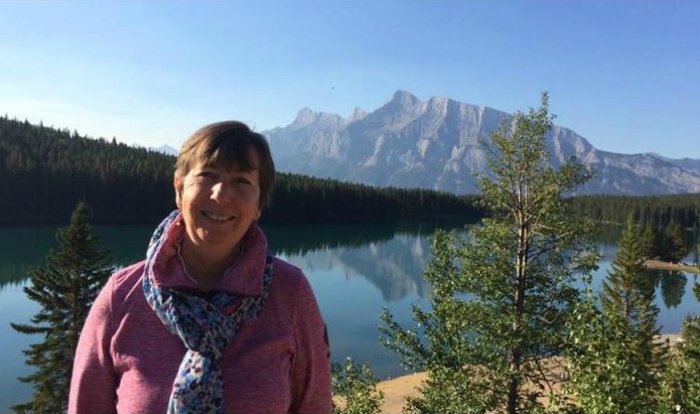
Helen on holiday
How to get travel insurance when you have blood cancer
George recommends looking for companies who have some proper knowledge of cancer:
“I use an insurance company which was set up by someone who had cancer herself. They really understand my situation.”
There's a thread about travel insurance on our online community forum.
Blood Cancer UK have partnered with Staysure to provide travel insurance for people with blood cancer:
How to choose your type of transport
Erica, who’s on active monitoring for chronic lymphocytic leukaemia (CLL), recommends avoiding air travel if you’re susceptible to infections:
“I avoid flying because of the recycled air in the cabins, which may cause me to catch bugs. I break up long journeys to avoid fatigue, and steer clear of places with high humidity, because it saps my energy and makes me feel faint.”
How to pack medication
Paul, who has chronic myeloid leukaemia (CML), has advice for packing medicine:
“I always take one of my consultant check-up reports to pack with my chemo drugs. It has the NHS Trust official contact details on it, info about my diagnosis, treatment and the drugs I'm on and the dosage. These things should help you avoid tricky conversations with Customs Officers.”
Mel, who has chronic lymphocytic leukaemia (CLL), also has words of wisdom for anyone taking medicine in their luggage:
“If you’re travelling with someone else, take double the amount of medication you’ll need. Put half in your bag, and the other half in your companion’s bag – just in case your luggage goes missing. And it should be in your hand luggage, rather than hold which is more likely to be lost.”
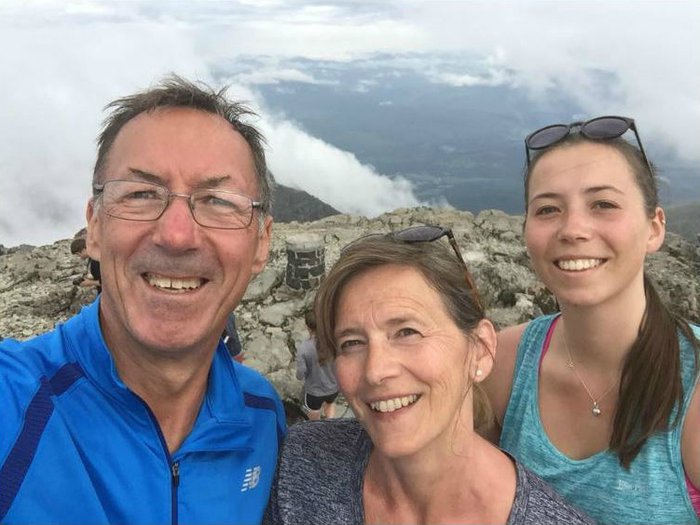
Mel and his family
Covid medicines and travelling
Not everyone with blood cancer needs antivirals or antibody treatments if they get covid, but some do. For many people, covid can seem mild at first but then get worse.
Before you go away, make sure you:
- Have all of your covid vaccinations, including the spring 2023 booster
- Ask your healthcare team what you should do if you get covid while you are away
- Take lateral flow tests away with you, and test if you get symptoms
You can also check the policy for covid treatments in the country you are visiting by contacting their health authority. If you have a UK European Health Insurance Card (UK EHIC) that hasn’t expired yet, or a UK Global Health Insurance Card (UK GHIC), you can access the same medical treatments as residents of the country you are in. So if covid treatments like Paxlovid are available in the country you are in, and you would be eligible for it according to that country’s guidance, you might be able to access it there.
Make sure you have contact numbers for your healthcare team too, including numbers for evenings and weekends.
Other things to pack
Emma has a list of must-take items:
“If it's going to be warm, take sun cream with a high SPF and a hat. If you’re flying, compression socks, face mist and an eye mask are really useful.”
Erica adds:
“I take a written medical diary with details about my condition, allergies, current medications and dosages.”
How to cope with symptoms and side effects while you’re away from home
Emma thinks it’s important to allow for rest time:
“Don't overload the itinerary. Give yourself some breathing space in case you need to rest. Drink loads of water and stick to food that you know works for you.”
Erica agrees:
“My energy levels sap by mid afternoon, so I plan my days accordingly and allow time for naps to manage my fatigue. I always make sure I can get back to base if I’m not feeling well. I also try to get some fresh air and exercise, which makes me feel better, but make sure I have plenty of me time, like having a bubble bath.”
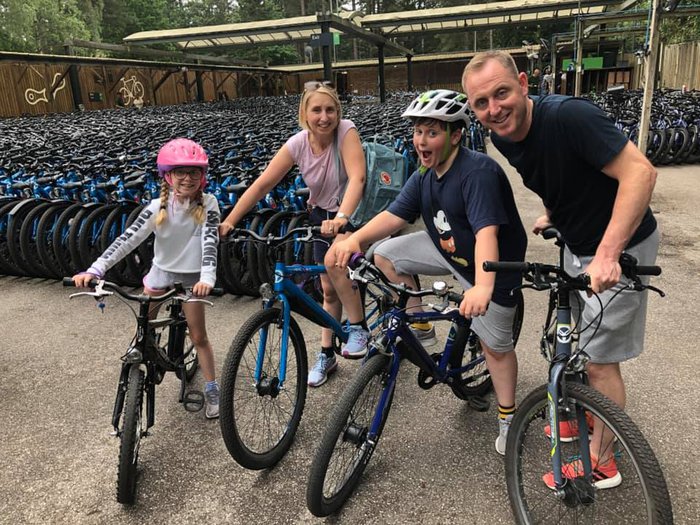
Louise with her family
Louise (pictured above with her family) is in remission from Hodgkin lymphoma. She adds:
“Listen to your body and don’t push it too far. Otherwise, you won’t feel the benefit of your break.”
Always speak to your doctor or nurse before you go on holiday to find out if there's anything you need to be aware of.
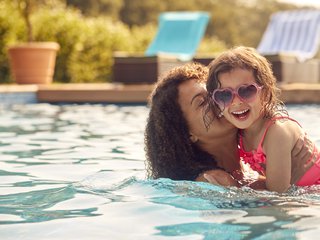
Travel insurance
We've partnered with Staysure to make travel insurance easier to access for people affected by blood cancer.
